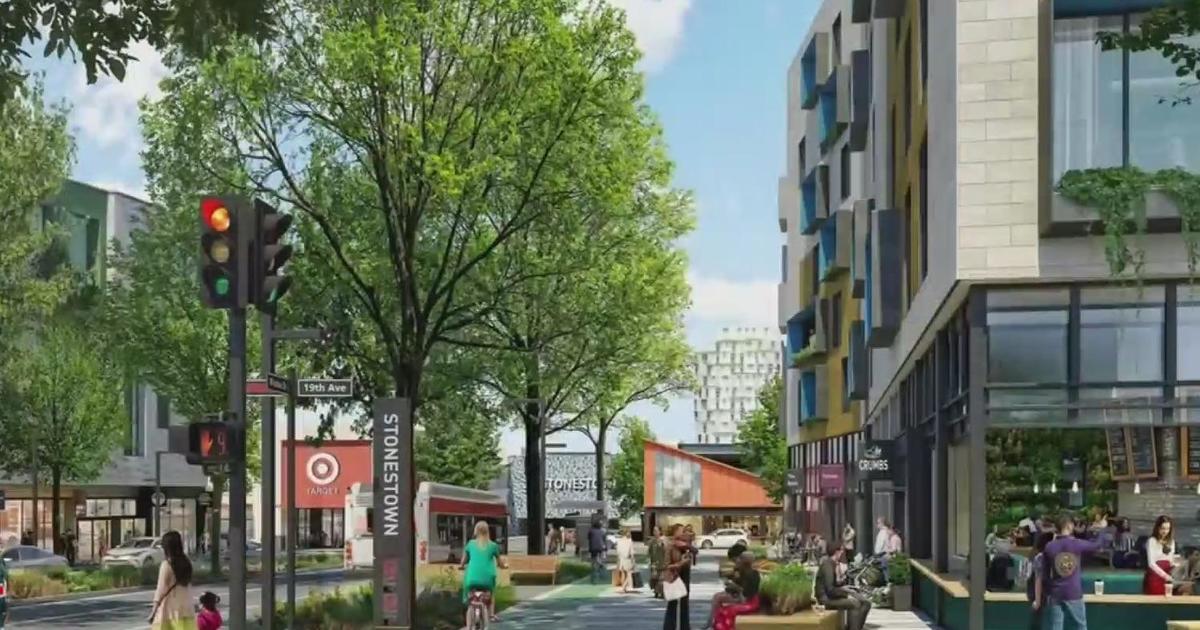Bay Area Homelessness Regional Action Plan Announced; Seeks To House 75% Of Homeless By 2024
SAN FRANCISCO (KPIX 5/BCN) -- Local and state leaders, housing experts, businesses and social justice advocates from all nine Bay Area counties have united to create a Regional Action Plan that aims to house 75 percent of the area's homeless population by 2024.
After a year of planning, the multi-pronged strategy was announced at a virtual news conference on Tuesday. There, Santa Clara County Supervisor Cindy Chavez, state Assemblymember David Chiu, D-San Francisco, and leaders from All Home, the nonprofit that is leading this effort, conceded that this was an ambitious goal.
The plan is being called a first-of-its-kind regional approach to solving the Bay Area's intractable homeless problem.
"There will be less people living outside for less time. And we will be able to have a more holistic approach to respond to people across the region," said Sherilyn Adams, Executive Director of Larkin Street.
The Regional Impact Council said leaders in the nine Bay Area counties will focus on creating more interim housing, permanent housing, and homeless prevention. Officials say they can be more effective working together to secure funding from the state and federal government.
"I think that one of the outcomes we're going to see is a much better use of public resources," said Cindy Chavez, President of the Santa Clara County Board of Supervisors.
The Bay Area has more than 35,000 individuals living in the region's streets, according to a 2019 U.S. Department of Housing and Urban Development report, and that number may have gone up since the pandemic's start.
In three years, the goal is to bring that number down to 10,000 individuals.
"Anybody who's lived in the Bay Area for any length of time knows that is a very audacious goal," said Ken Kirkey, chief partnership officer at All Home. "But we believe it is achievable in part because the plan has an integrated approach with a simultaneous provision of things that in the past we have pitted against each other."
"We actually are seeing more people fall into homelessness faster than we can rehouse them," said Sherilyn Adams, executive director of the non-profit Larkin Street Youth Services. "Cost-effective investment and prevention can keep our families and our individuals stable and housed."
To Adams and the rest of the coalition, that means providing accelerated cash payments, income-targeted rental assistance and other housing support from the state and federal level to people impacted by COVID-19.
To address the racial inequities, the coalition is calling on the state to create and expand practices to measure equity levels across California to observe progress and increase accountability for outcomes by tying funding to demonstrated progress toward closing disparities.
It also calls on counties to extend eviction moratoria for at least 60 days if the state's moratorium, set to expire on June 30, is not extended.
The second major component of the RAP is actually getting people into interim or permanent housing.
The coalition plans to do this using what they call the 1-2-4 framework. Essentially the plan outlines that for every one unit of interim housing built, there should be two units of permanent housing and four units of homeless prevention interventions to keep people housed.
"The one to four, that ratio is our analysis of the Bay Area homelessness population writ large," Kirkey said. "When that is brought to a county level that might look different in Santa Clara County ... than in Sonoma County."
However, Kirkey said the coalition intends to work with individual counties to find a tailored approach.
All of the aforementioned ideas brought by the coalition are not new, but a regional, comprehensive plan with input and organizing from the Governor's Office, local governments, philanthropic partners and many others is new, the leaders said.
And it could allow the region to be more fluid in the way that funding is used to address the trans-jurisdictional issue that is homelessness.
"By working together we're going to be able to change the trajectory of a whole number of initiatives, including how we fund permanent supportive housing, how we fund the services that people need," Chavez said.
All Home founder and CEO Tomiquia Moss said this is because counties can communicate and work together to find gaps in funding.
This is necessary because resources are often specifically tied to local or county jurisdictions and cannot to be shared across geographies, Moss said.
"Our region is interconnected, and we need to have our policies and systems be connected in a way that allows people to be served," Moss said.
The coalition includes the mayors of San Francisco, Oakland and San Jose, local elected officials from all nine Bay Area counties, Facebook, Salesforce, Kaiser Permanente, Goodwill, and Destination Home, among many other partners.
There was immediate word of how much the plan will cost. Meantime the difficulty of the homeless problem was evident near San Jose schools. City crews loaded bedding and furniture into dump trucks, and bagged personal belongings as part of a homeless camp sweep Tuesday along Rough and Ready Drive.
The camp is across the street from Painter Elementary and Sheppard Middle School.
"I think that schools have become an easy place for people to camp because there are things like rest rooms, water fountains, things like that," said Dr. Hilaria Bauer, Alum Rock School District Superintendent.
On some campuses, homeless campers appear to be parked for days or even longer in school parking lots.
Now, as schools prepare to re-open for in-classroom learning, the Alum Rock and Frankling McKinley School Districts have asked the city for help in relocating unhoused folks near campuses for safety reasons.
"We don't know exactly who's in those campers. There's a little risk for children walking by and not knowing, you know, who is there," Dr. Bauer said.
Solutions can't come soon enough for those swept up Tuesday. One man forced to move out said he was not offered any housing, only plastic bags to pack up his things.
Len Ramirez contributed to this report.
© Copyright 2021 CBS Broadcasting Inc. All Rights Reserved. This material may not be published, broadcast, rewritten, or redistributed. Bay City News Service contributed to this report.



